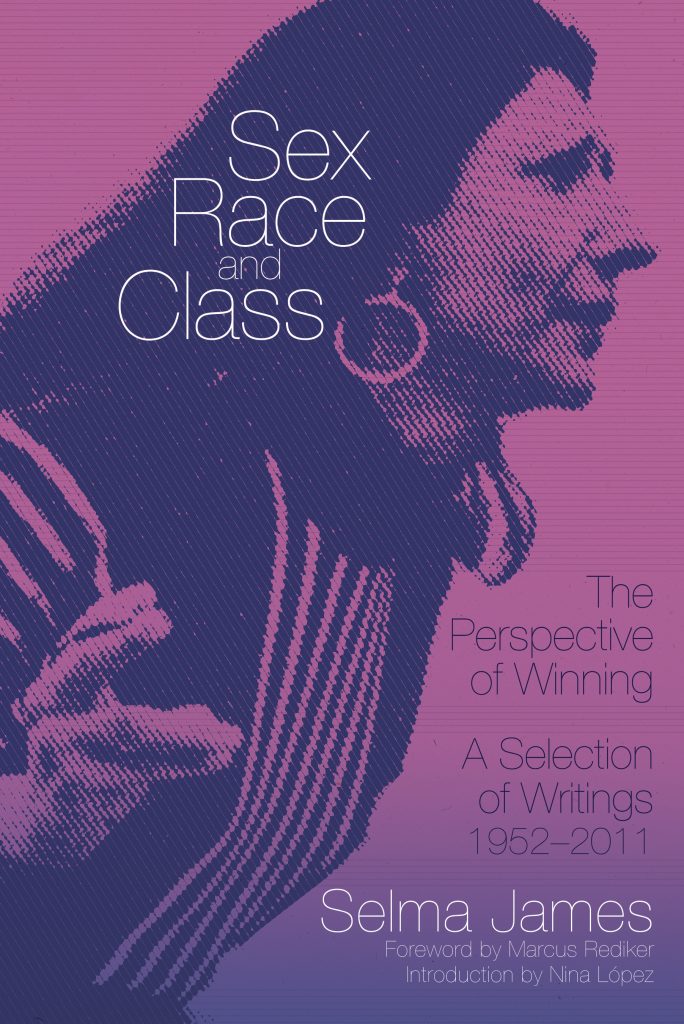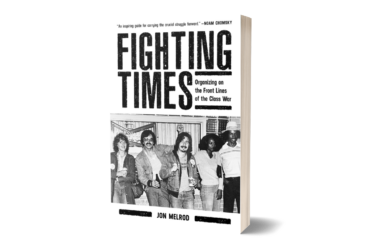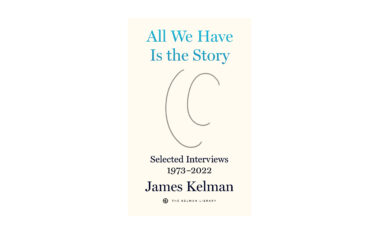
By Madam Tlank
Mute Magazine
September 18, 2012
In memoriam, Shulamith Firestone
Selma
James is a great speaker. This collection of her writing from 1952-2011
shows that the same clarity and precision are also found in her written
works. This has something to do with her thought and writing process.
Her first pamphlet, ‘about being a housewife and about the women in my
working-class neighbourhood’, was revised and sharpened in response to
comments (most of which ‘I disagreed with’) from ‘my neighbours, who
were not “political”‘. Committed to this ‘collective writing’ and to
collective organising, James is driven to be precise and clear: ‘I hate
imprecision. It’s the enemy’. There is not one imprecise line here
(unless it is someone else’s she is attacking). The materialistic
urgency with which James cuts through the claims of official feminism,
academia, unions, NGOs and other branches of ‘brain prostitution’ is
especially welcome right now for those of us recently bereaved of
Shulamith Firestone and in as much need as ever of a fierce Marxist
feminism grounded in ‘collective, social action by people whose eye
contact with reality is not on the whole mediated by learned tomes’.1
James herself refused to go to university because ‘I was afraid it would
ruin my mind’.
One argument running throughout the book is
about the reproduction of capitalist hierarchy within the working class,
manifest in divisions such as waged/unwaged, women/men, black/white,
‘3rd’/’1st’ world, child/adult.2 Unions (e.g. in representing only
waged/’legal’/specific-sector workers) and parts of the left ignore and
exacerbate these divisions; the Wages for Housework campaign set out to
make them visible and quantifiable. Consistent through 60 years of
James’ political strategy is this principle: ‘the weakest parts of the
working class (the unwaged) have to figure out how they can fight and on
that basis show the dominant parts of the working class how it is to be
done’. If one sector loses, all sectors lose, but even if one sector
wins without the others it usually translates into a defeat, ‘for in the
disparity of power within the class is precisely the strength of
capital’. Or as she puts it elsewhere: ‘With victories like that, we
don’t need defeats’. The practical lesson: ‘Those with more power must
unite with us with less because we know better what their interests are
than they know themselves’.
But in order to struggle against
intra-class hierarchy, its existence must be acknowledged. Therefore
James has little patience with the ‘horizontalism’ through which
elements of the academic and activist left (not to speak of management
theorists) would simply wish division away. ‘Horizontalism assumes that
there are no differences among us. Well, there are […] And one of the
things which I expect my leadership to do is to expose the hierarchy so
that we can undermine it, not hide it, not make believe it isn’t there,
not “Raise our consciousness” so we don’t notice it’. And: ‘when
divisions are called “diversity”, the problems become cultural and no
one need address how and why we are divided […] how can you avoid naming
the divisions among us as part of addressing what to do about them’.
A
second continuous thread, entangled at every point with the first, is
the fight against work. Not for ‘decent’, ‘meaningful’ or ‘well paid’
work, but against the indignity of labour as such. ‘Work is not just
another issue’, it is ‘the essence of capitalism, which must be
destroyed, root and branch’. In James’ reading of Marx and of life, the
wage relation structures all social relations. To break the neck of the
system, we must fight against work. To fight against work, we must
understand precisely what constitutes work in capitalism. Thus, all
unwaged work that feeds into the capitalist social relation must be
accounted for. Hence, wages for housework.3 James speaks in defence of
mothers and ready to fight as one of them when she states that women’s
work ‘is not outside the wage relation. […] The wage and the wage
relation, often in form of a man’s wage, commands the work we do; the
wage and the wage relation dominates the society we do this work for,
and thus most directly dominates us’. Housework, care work is labour
taking place within the capitalist relation. It must be refused even
though it involves the well-being of other human beings (which is always
the unfair pressure put upon nurses or teachers who go out on strike).
Then
there is James’ beef with what generally passes for feminism, and
consequently with academic ‘movement managers’ (along with those in
local government, unions, NGOs etc.). As I followed James’ arguments and
criticism over these 60 years I was struck by how clear sighted she has
been all along about what academic thought and professional advocacy
might do to the movement. The threat of incorporation was obvious to her
all along: ‘The challenge to the women’s movement is to find modes of
struggle which, while they liberate women from the home, at the same
time avoid a double slavery and prevent another degree of capitalist
control and regimentation’. Demands for ‘equal pay, free
twenty-four-hour childcare, equal educational opportunity and free birth
control and abortion on demand’ – could be ‘vital’ if ‘incorporated
into a wider struggle’, but as they stand ‘they accept that we not have
the children we can’t afford; that the State facilities keep the
children we can afford for as long as twenty-four hours a day; and that
these children have equal chance to be conditioned and trained to sell
themselves competitively with each other on the labor market for equal
pay. By themselves these are not just co-optable demands. They are
capitalist planning’. This was written in 1972; perhaps it will be
heeded some time after 2012. In the meantime, sponsored feminists debate
whether women ‘can have it all’ (i.e. children AND a high-end
professional career), while ‘strategy’ means getting more women onto
FTSE 100 boards.
One of James’ great strengths is how
materialist she is. She ALWAYS asks where the money comes from? Who gets
what? What for? Etc. One of the best pieces in this book, ‘Reflections
on a Conference’, does this so acutely it’s hilarious. ‘And so the […]
consideration that I felt was missing in the discussion yesterday […]
was money. It’s not a dirty word, especially for those of us who don’t
have much.’
This materialism always insists on the totality of
social relations, but there’s nothing abstract about it: it’s decisive
again and again on concrete particulars.
For example, on government:
There
is no cake [of which some can have a slice and others can’t], there is
no budget, there is only the wealth which we have made and which they
have stolen.
On unions and the ‘right to work’:
You
would think it is immoral to be disengaged from exploitation. The only
thing “wrong” with unemployment is that you don’t get a pay packet.
On feminism:
The theory of patriarchy cut off from and prioritized over class, race, etc. , is a scabs’ charter.
On disciplines and discipline:
Psychology
itself by its nature is a prime weapon of manipulation. It does not
acquire another nature when wielded by women in a movement for
liberation. Quite the reverse […]
Women’s liberation needs:
–
to destroy sociology as the ideology of the social services which bases
itself on the proposition that society is ‘the norm’ […]
– to
destroy psychology and psychiatry which spend their time convincing us
that our ‘problems’ are personal hang-ups and that we must adjust to a
lunatic world […] If we don’t deal with them, they will deal with us.
–
to discredit once and for all social workers, progressive educators,
marriage guidance counsellors, and the whole army of experts whose
function is to keep men, women and children functioning within the
social framework, each by their own special blend of social frontal
lobotomy.
And ultimately on all of the above:
Everything
I have been saying assumes that the wage (what capital pays us) is the
crucial point of conflict between us and capital. They want the money;
so do we. They want the money because they want to force us to work. We
want the money because we don’t want to be forced to work. We understand
each other perfectly; we just disagree.
Footnotes
1 Citing Virginia Woolf’s The Three Guineas,
New York: Penguin, 1972, James writes: ‘When a woman entered the
professions, they were involved in “brain prostitution” […] But when a
brain seller has sold her brain, its anemic, vicious and diseased
progeny are let loose upon the world to infect and corrupt and sow the
seeds of disease in others.’
2 Some of Firestone’s best arguments reappear here, see: Shulamith Firestone, ‘Down with Childhood’, in The Dialectic of Sex, London: Paladin Press, 1972.
3
Note the contrast with Stella Sandford’s concept of ‘caring work/
maternal labour’, which Sandford posits as somehow not quite subsumable
under capital. See: Mme Tlank and Mira Mattar, ‘Past Caring’, Mute vol.3, No.2, http://www.metamute.org/editorial/articles/past-caring





